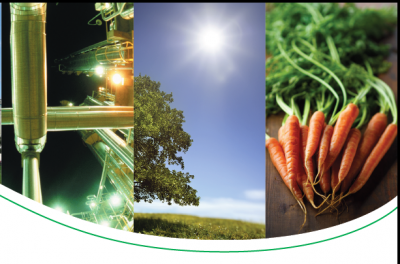
Overview
Due to rapidly increasing CO2 levels and the anticipated ultimate depletion of oil, alternative renewable hydrocarbon energy and chemical feedstock sources must be developed. Biomass represents a promising renewable source of hydrocarbons that also has the potential to reduce greenhouse gas emissions because biomass consumes the CO2 released during energy use during re-growth. However, significant challenges must be overcome for biomass to become a major source of hydrocarbons. Four of the challenges currently being addressed at UC Berkeley include the development of new catalytic chemistry for biomass processing, understanding of the environmental implications of biomass production, assessing potential impacts of new biobased fuels and chemicals throughout their life cycles, and evaluating policy drivers for biomass energy investment.
Project Opportunities:
Catalytic Chemistry for Biomass Processing (Bergman, Chang): We aim to take advantage of the current dramatic increase in homogeneous and heterogeneous catalysis research to develop new catalysts for the conversion of biomass-derived materials. This would lead to more highly reduced materials, such as hydrocarbons and more lightly oxygenated organics, that would be useful as chemical feedstocks and transportation fuels.
Environmental Systems Impacts (Iles, Kammen, O’Hare, McKone): To develop second generation feedstock and technologies, IGERT fellows will help conduct in-depth, systematic, basic investigation of the impacts of feedstock and processing choices made in the chemistry projects on agricultural/forestry systems while also considering ethical and public policy questions.
Integrated Impact Assessment of Materials (Schwarzman, McKone, Jerrett):
Anticipatory impact assessment will require students and practitioners to develop and implement multidisciplinary analytical methods for assessing the potential impacts of large-scale adoption of low-carbon technologies, in terms of net energy, environmental health, and economic implications.
Regulatory and Policy Frameworks (Iles, O’Hare, Rosen, Farber): IGERT fellows will analyze policies, incentives, and regulations that can help prioritize the use of green chemistry in clean energy technologies. These include market strategies, information requirements, chemical phase-outs or bans, labeling requirements, extended producer responsibility, target standards, technology specifications, permitting, and subsidies.
Campus Connection:
Energy Biosciences Institute: http://www.energybiosciencesinstitute.org/
